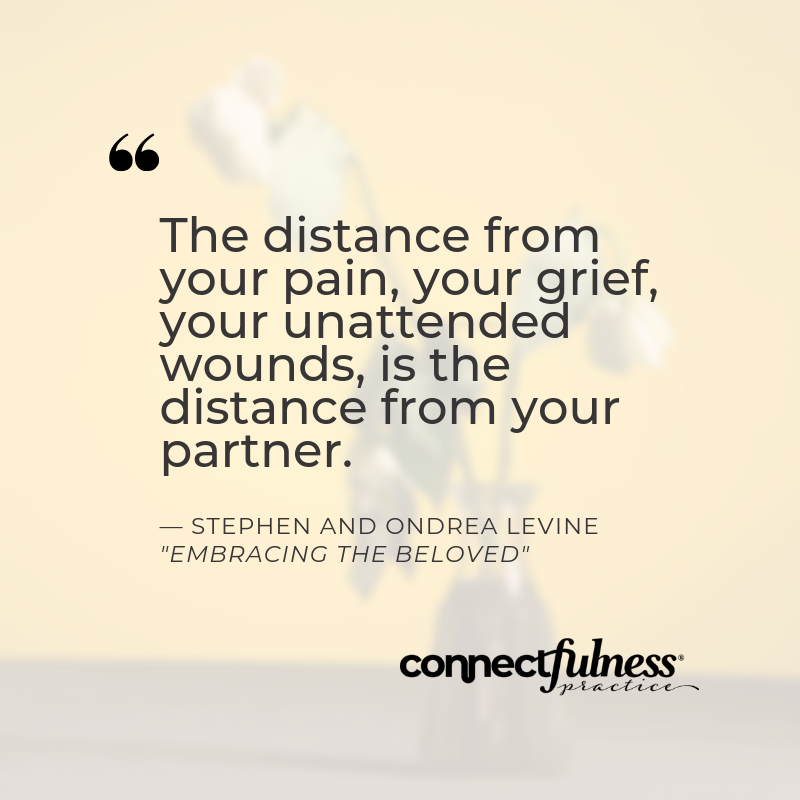Subscribe: Apple Podcasts | Google Podcasts | Amazon Music | Libsyn | Email | RSS | Android | Stitcher | YouTube
Have you ever said something like “I’m just wired this way” in response to someone asking why you can’t just relax and go with the flow more?
Maybe you’re scared of certain smells, places, uniforms, noises and other common things found in everyday life without knowing where you developed that particular aversion. As we discussed in our last episode, our brains hold onto the negative experiences for survival -- they become a reference guide to navigating life. But what if we don’t know why we’re reacting negatively towards the mere thought of these scenarios?
Recently, I sat down with Mark Wolynn and dove into the topic of inherited family trauma and the science behind epigenetics. You won’t want to miss this discussion as I am sure you’ll be just as fascinated as I was with what Mark shares in regards to where our fears and stress triggers come from and what we can do about breaking the pattern for ourselves and loved ones.
Mark Wolynn is the director of theFamily Constellation Institute in San Francisco.He is a leading expert in the field of inherited family trauma.His bookIt Didn't Start With You:How Inherited Family Trauma Shapes Who We Are and How to End the Cycleis thewinner of the 2016 Nautilus Book Award in psychology, and has beentranslated into 15 languages.
In this episode, Mark and I discuss:
What happens during a trauma.
What it means to have inherited family trauma.
What an inherited stress response is.
How we can understand what, if any, stress response or trauma response are actually really our own.
How our own language can affect our personal body response to trauma.
Breaking down verbal and nonverbal trauma languages into what Mark calls Core Languages.
How the relationship between ourselves and our parents affect our current relationships.
The scientific research and studies behind inherited family trauma.
What an epigenetic tag is & how we can benefit from epigenetic changes.
“Trigger ages” and “event triggers” that may shed light on your own triggers.
What this means for people who were adopted and do not have access to their family of origin’s medical/health records.
How brain development is impacted starting in utero and grows throughout childhood.
How the amygdala, prefrontal cortex & hippocampus develop & process trauma and what that means for us.
How we can heal as person(s) suffering from inherited family trauma.
Tips on how to break the cycle of inherited family trauma.
Combining our breath with sensation and awareness, we can then weave in meaning and are able to integrate more positive experiences.
70% of couples problems have nothing to do with partners.
The work of opening is YOUR responsibility.
Listen to the entire episode to discover your own valuable insights and understanding on this topic and share it with loved ones!
Resources:
Find out more about Mark’s work at https://www.markwolynn.com/
Mark’s Book: It Didn’t Start With You: How Inherited Family Trauma Shapes Who We Are and How to End the Cycle
Read Rebecca’s personal story “Liberation: a love story (and a reckoning)” on how inherited family trauma has showed up in her life, recently published on Longreads.com
While these discussions will guide you into the Connectfulness Practice, the podcast is not meant to be a substitute for counseling from a licensed provider. Reach out. Initiate the ripple. Learn more about my connectfulness counseling practice and our collective for therapists in private practice here.
This episode is brought to you by Therapy Notes. Therapy Notes is a simple, secure, EHR platform that keeps you organized and creates a container for all details that run a private practice -- so you can tend to what really matters. Use the promo code connectfulness and get two months free when you sign up at therapynotes.com

















